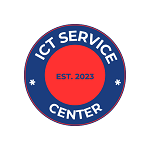Advantages of ICT include improved communication, enhanced productivity, access to information, and global connectivity. ICT facilitates seamless communication, boosts productivity, and provides easy access to vast information, enabling global connectivity and collaboration.
In today’s digital age, Information and Communication Technology (ICT) plays a pivotal role in driving advancements across industries and societies. The seamless integration of ICT offers numerous advantages, revolutionizing the way businesses operate and individuals interact. This technology facilitates enhanced communication, efficient information sharing, and improved productivity.
Furthermore, ICT provides access to a wealth of information and enables global connectivity, fostering collaboration on a global scale. We will delve into the diverse advantages of ICT, exploring how it reshapes the modern world and empowers organizations and individuals to thrive in an interconnected digital landscape.

Understanding ICT And Its Advantages
Definition Of ICT
ICT, or Information and Communication Technology, refers to the technology used to manage and process information. It encompasses a wide range of technologies, including computers, software, networks, and communication devices, that enable users to access, store, transmit, and manipulate information.
The Significance Of ICT In Today’s World
The significance of ICT in today’s world cannot be overstated. It has transformed the way we live, work, and communicate, offering numerous advantages across various sectors. From improving communication and collaboration to enhancing efficiency and productivity, ICT has become an indispensable part of modern life.
Economic Advantages Of ICT
ICT’s Role In Boosting Economic Growth
Information and Communication Technology (ICT) plays a critical role in bolstering economic growth by driving efficiency, productivity, and innovation across various industries. By leveraging ICT tools and platforms, organizations can streamline their operations, enhance their competitive edge, and ultimately contribute to the overall economic prosperity. ICT serves as a catalyst for fostering a dynamic and agile business environment, enabling enterprises to adapt to rapidly changing market dynamics, capitalize on emerging opportunities, and maximize their economic output.
Job Creation And Innovation Through ICT
The integration of ICT into various facets of the economy fosters job creation and stimulates innovation, leading to a more vibrant and robust labor market. Through the adoption of advanced technologies and digital transformation initiatives, businesses can generate new employment opportunities, particularly in the fields of software development, data analytics, cybersecurity, and digital marketing. Moreover, ICT empowers entrepreneurs and start-ups to pioneer disruptive solutions, bringing forth novel products, services, and business models that fuel economic progress and sustainable growth.
Social Advantages Of ICT
When it comes to the social advantages of ICT (Information and Communication Technology), the impact of technological advancements on connectivity, communication, education, and healthcare has been nothing short of revolutionary. Embracing ICT has fostered a significant shift in how individuals and communities interact, access resources, and improve their overall well-being.
Enhanced Communication And Connectivity
The widespread adoption of ICT has greatly enhanced communication and connectivity on a global scale. Through platforms such as social media, email, video conferencing, and instant messaging, individuals can effortlessly engage with others across different geographies in real-time. ICT facilitates the rapid dissemination of information and fosters meaningful connections, breaking down barriers of distance and time.
Access To Education And Healthcare Through ICT
ICT has revolutionized accessibility to education and healthcare. Online learning platforms, virtual classrooms, and e-books have democratized education, making it more accessible to people from diverse backgrounds. Similarly, telemedicine and digital health records have transformed the delivery of healthcare services, ensuring that individuals can receive medical attention and consultation regardless of their physical location.
“`
The advantages of the Internet, including e-mails and instant messaging, video conferencing, and numerous social media platforms, can be mentioned below as a bulleted list:
– Rapid dissemination of information
– Facilitates meaningful connections
– Overcoming barriers of distance and time
Furthermore, the innovative advancements in ICT that revolutionized education and healthcare can be outlined as an ordered list:
1. Online learning platforms
2. Virtual classrooms
3. E-books
4. Telemedicine
5. Digital health records
Environmental Advantages Of ICT
The environmental advantages of ICT are significant in the modern era, contributing to a more sustainable and eco-friendly approach to various practices. ICT (Information and Communication Technology) has brought about several advancements that have positively impacted the environment, promoting sustainable practices and lessening the carbon footprint through digitalization.
Sustainable Practices Enabled By ICT
ICT has enabled the implementation of sustainable practices across various industries, emphasizing efficient resource utilization and waste reduction. Through the use of technology, businesses can streamline their processes, optimize energy consumption, and promote eco-friendly initiatives.
Reduction In Carbon Footprint Through Digitalization
Digitalization has played a pivotal role in reducing the carbon footprint by diminishing the need for physical resources and energy-intensive operations. By leveraging digital solutions, organizations can significantly minimize paper usage, energy consumption, and greenhouse gas emissions, thereby contributing to a greener and more sustainable ecosystem.
Global Advantages Of ICT
Breaking Down Geographic Barriers
The use of Information and Communication Technology (ICT) has significantly contributed to breaking down geographic barriers by enabling seamless communication and collaboration across different regions of the world. Global businesses are now able to expand their operations and reach a wider audience without being limited by geographical constraints. This has facilitated the growth of international trade and commerce, allowing companies to establish a global presence and tap into diverse markets.
Promoting Cultural Exchange And Understanding
ICT has played a pivotal role in promoting cultural exchange and understanding on a global scale. Through various digital platforms and communication tools, individuals from different cultures can interact, share their traditions, and gain a deeper appreciation for diversity. Online communities and social media platforms have become conduits for fostering cross-cultural dialogue, ultimately contributing to a more inclusive and interconnected world.

Credit: learningbox.online
Frequently Asked Questions Of What Are Advantages Of ICT ?
What Are The Main Advantages Of Using ICT ?
Information and Communication Technology (ICT) offers numerous advantages, including improved communication, enhanced access to information, increased efficiency, and better learning opportunities. ICT also facilitates global connectivity and enables businesses to reach wider audiences, contributing to growth and development.
How Does ICT Benefit Businesses And Organizations?
ICT plays a pivotal role in streamlining business operations, increasing productivity, and enhancing customer engagement. It enables organizations to leverage data analytics for informed decision-making, improves collaboration among teams and external partners, and provides cost-effective solutions for marketing and communication needs.
In What Ways Does ICT Contribute To Educational Advancement?
ICT revolutionizes the educational sector by providing interactive learning platforms, access to a vast array of educational resources, and facilitating distance learning. It enhances the learning experience, promotes innovative teaching methods, and equips students with essential digital skills required for the modern workforce, thus preparing them for the future.
Conclusion
The advantages of ICT are diverse and influential in today’s society. From improved communication to enhanced data management, ICT has revolutionized various aspects of our lives. Embracing this technology opens up countless opportunities for businesses, education, and personal growth. Harnessing the power of ICT is essential for success in the digital age.

